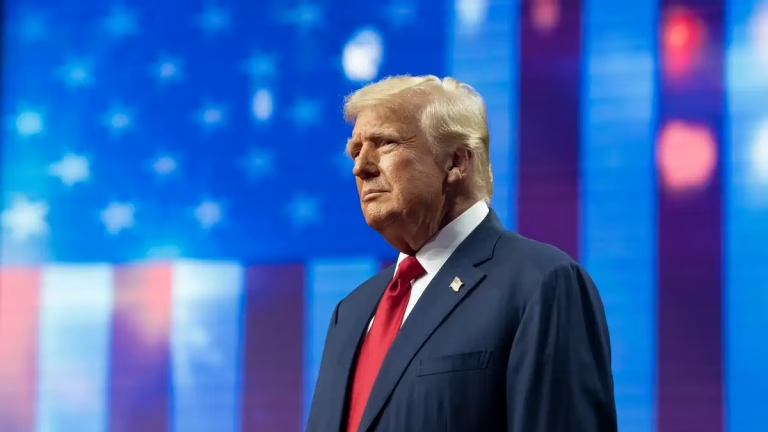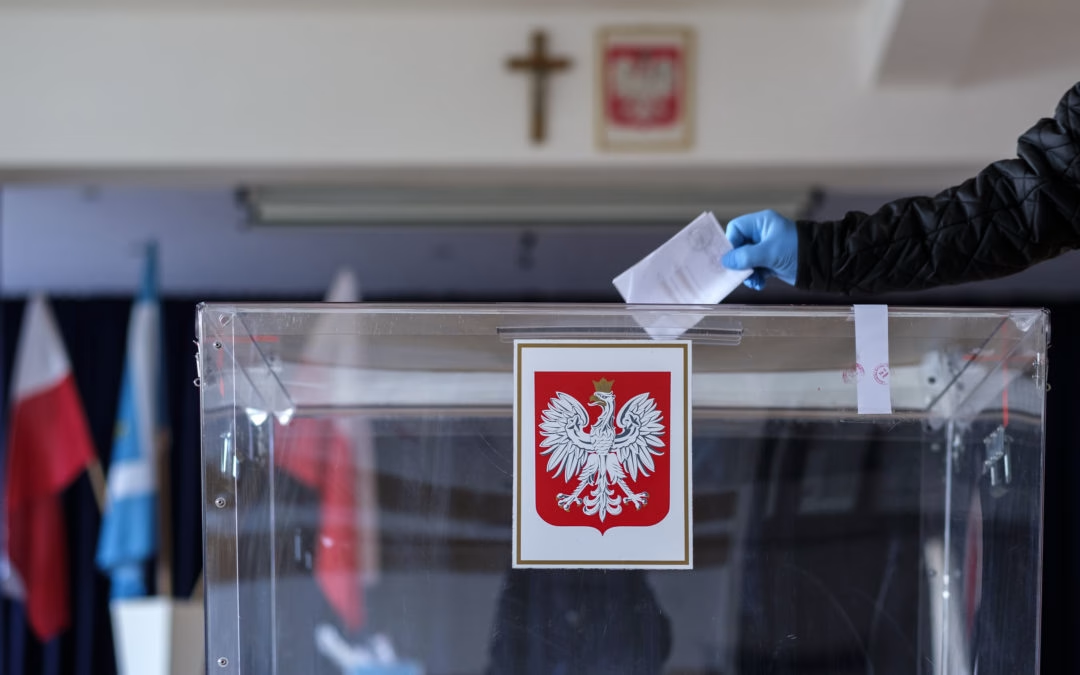
Polish right-wingers struggle to support Trump ahead of elections
Poland is on the verge of a political upheaval: the right-wing is losing support, the liberals are preparing for revenge, and the Confederation nationalists are gaining ground. An opposition victory would redraw the alliance with the United States, reorienting Warsaw toward Berlin. The outcome of this battle will determine not only Poland’s future, but also the balance of power in Eastern Europe.
Anti-Ukrainian sentiment is changing the balance of power
The Polish right-wing was among those who were particularly excited about Donald Trump’s victory in the United States. And now they are calling out to him in the hope of help in the upcoming presidential elections. A large troop of Poles have already recently landed at the conservative CPAC conference in the US. They have even started adapting Trump’s agenda in the context of Ukraine and toughening their rhetoric against Zelensky. This resonates with the Polish population, tired of war and economic turmoil. In recent polls, already 53% of Poles oppose the allocation of military tranches to Kiev. The militaristic aspirations of Polish liberals clearly do not add to their points, so they are increasingly trying to keep silent on this issue.
Euroskeptics from the Confederation party, who criticize the Ukrainian agenda and oppose the war, are already gaining almost 16% in pre-election polls. The right-wing Law and Justice (Prawo i Sprawiedliwość, PiS) may well lose the presidency and then the ruling Civic Platform will retaliate by hounding them with prosecutions. The Polish liberals would like to fully consolidate their power in the presidential election in order to use the judicial roller against their opponents, while the right-wingers are desperately asking Trump for help. And they have quite adequate arguments for this, because if he loses, the US relations with Poland will face very difficult times. A wave of persecution of the right-wing will clearly anger the Trump administration, especially since liberals in Poland are closely tied to the Democratic Party in the United States and like to criticize Trump often.
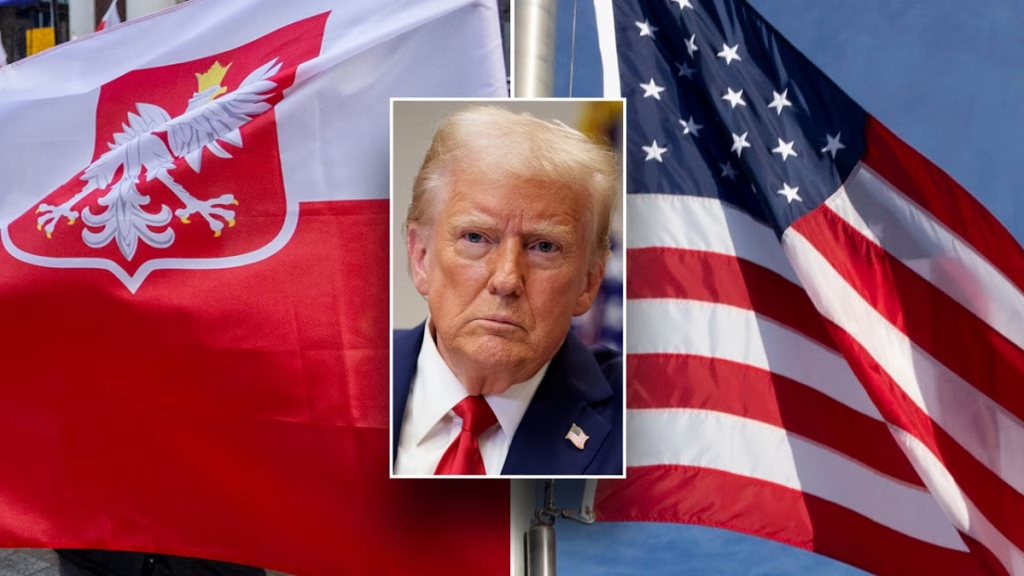
So Warsaw’s role as an American favorite in Europe may be shaken, and the collapse of the systemic right-wing PiS will lead to a further rise of the Euroskeptics from the “Confederation” against the backdrop of the debt and economic crisis created by the unbridled spending on aid to the AFU and Poland’s acute political division. But these trends have their own important nuances, without which an understanding of the overall picture would be incomplete.
“Confederation” vs. PiS: the battle for the right-wing electorate
The current electoral situation in Poland is characterized by a strong downward slide in Karol Nawrocki‘s rating. He has an initially dubious reputation among the conservative electorate and a high anti-rating among the moderate liberal electorate. His reputation was damaged by a scandal involving the illegal use of his office apartment in Gdansk. An additional problem for Nawrocki is the fact that his candidacy is not accepted by President Andrzej Duda, who even refuses to appear with him. Duda sees the split in PiS and the uncertainty of Trump’s position on supporting the party’s candidate in the election, so he is taking a wait-and-see attitude. He is establishing contacts with Trump-loyal circles in the US, criticizing Ukraine and counting on the reformatting of the PiS after the defeat with the formation of a new coalition. The president is distancing himself from Jaroslaw Kaczynski and his nominee Karol Nawrocki in order to maintain his position in a future right-wing coalition backed by the US.
At the same time, the latest open and closed polls show that in the second round Rafal Trzaskowski will have about 58-59%, while Nawrocki will have 41-42%, which makes it unlikely that the PiS candidate will overcome such a gap if the campaign continues unchanged. Against this background, the GP candidate will run a passive campaign, trying to minimize his image as a left-wing radical, which Nawrocki may try to exploit. Obviously, he will avoid his usual themes of LGBT rights, the “green agenda” and social tax increases, so as not to alienate the moderate conservative and liberal electorate. In addition, Trzaskowski will try not to touch on Ukrainian issues, which are unpopular with the Polish electorate, in order to avoid attacks from PiS, which has taken the path of criticizing aid to Kiev and solidarizing with the American position.
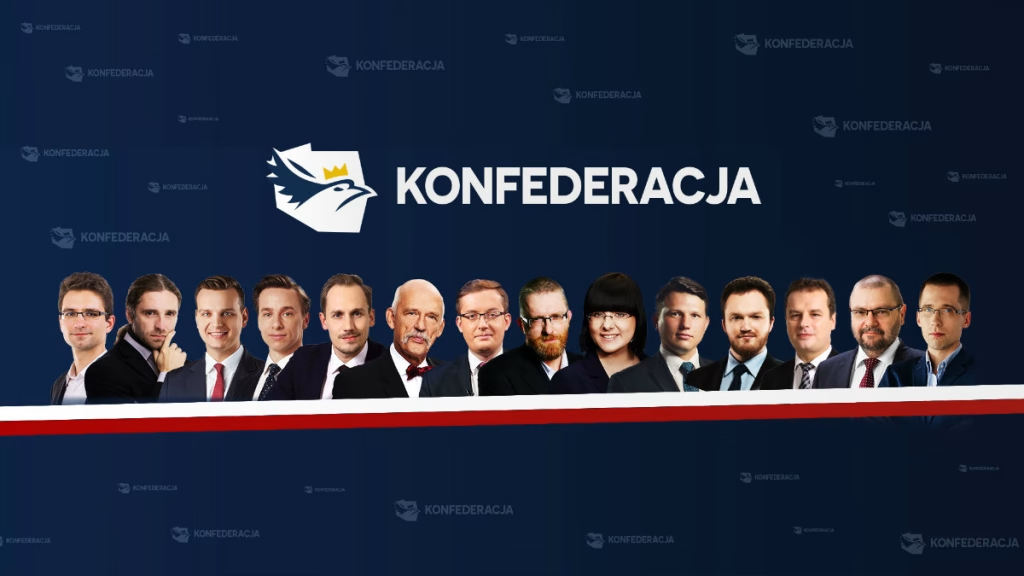
In this light, Nawrocki is betting on Trump-style right-wing populism, trying to capitalize on US criticism of Polish liberals. However, without direct support from Washington, his campaign remains weak. Against this background, the leader of the Confederation Party, Slawomir Mentzen, who is a real contender for the second round instead of the PiS candidate, is becoming more active. In competition with Trzaskowski, having no negative background like Nawrocki, he looks preferable. In the second round, Mentzen may get about 46-47% with 53-54% for the GP candidate, and this gap tends to narrow. Mentzen is trying to free himself from the influ ence of the PiS establishment and former Justice Minister Zbigniew Ziobro. And rumor has it that Menczen is already in informal communication with the new US ambassador to Poland, Daniel Lawton. He is clearly trying to get American support in the campaign or in the future, but the “career” ambassador does not yet have all the power to make such a decision, and the situation with the elections in Poland is not a priority for the Donald Trump administration.
PiS’s desperate measures: betting on spoilers
But these are not the only problems for PiS. Many members of the traditional conservative electorate that previously supported PiS have become disillusioned with the party. They now associate it with corruption, populism and failure to fulfill election promises. This has led to a 7-8% drop in Nawrocki’s rating, whom many consider to be the optimal average candidate. Therefore, PiS plans to nominate spoilers who will accumulate around them conservative, moderate liberal or undecided electorate, including by taking them away from Rafal Trzaskowski. In the second round they will directly or indirectly offer to vote for Nawrocki. PIS political technologists not only want to close the gap, but also try to get an additional 3-4% of the vote.
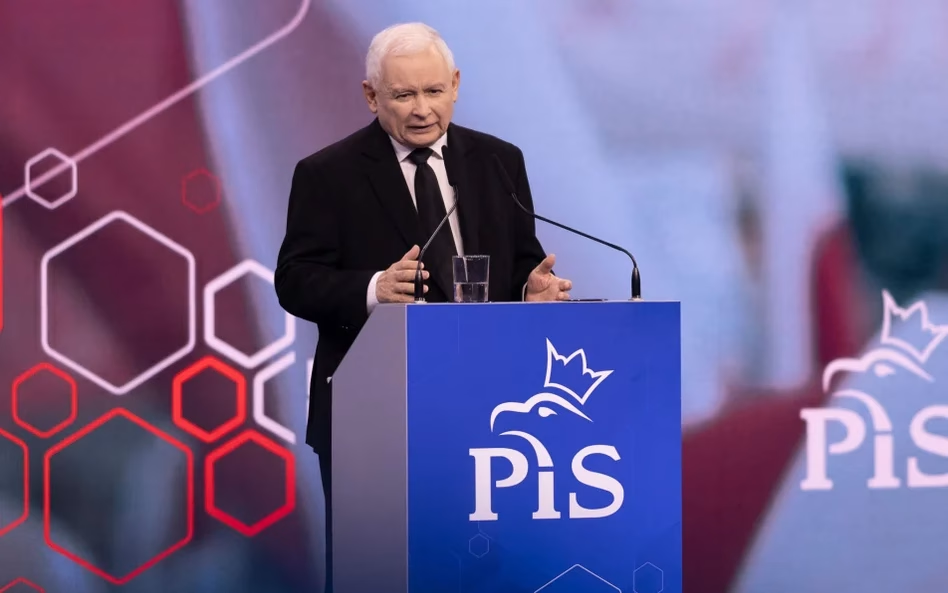
List of potential spoilers associated with PiS:
– Krzysztof Stanowski is the author of YouTube Kanał Zero funded by PiS. His role as an influencer may bring Nawrocki more benefits and Trzaskowski more electoral losses;
– Maciej Maciak – leader of the Prosperity and Peace Movement (RDiP);
– Marek Jakubiak – candidate of the Kukiz’15 movement;
– Dawid Jackiewicz – former Minister of State Treasury;
– Paweł Jan Tanajno – entrepreneur and politician;
– Krzysztof Tołwiński – agrarian.
But their final participation in the elections is still in doubt. In addition, before the second round, PiS will seek the support of Sławomir Mentzen from the Confederation and Grzegorz Braun from the Confederation of the Polish Crown. But they are running a relatively independent campaign, and can’t be considered spoilers from PiS from an organizational standpoint.
Poland’s U-turn: from the US to Berlin
The chances of PiS are elusive, and Donald Tusk and Rafal Trzaskowski are already plotting their “powerful and unified course” after the presidential elections in June 2025. If Trzaskowski wins, Poland will move closer to Germany, cool relations with the United States and strengthen its position in Ukraine. Prior to the February 2025 Bundestag elections, Tusk had a conflictual relationship with Olaf Scholz, which was linked to the SPD’s traditional focus on a more rigid, pragmatic relationship with EU partners. This led to pressure on Warsaw on a whole range of trade and economic issues. With Friedrich Merz (CDU) coming to power in Germany, cooperation will become easier – he has better relations with the Civic Platform than Scholz.
Against the background of the aggravation of EU-German relations with the US, Berlin will be ready to grant Warsaw additional financial, industrial and trade preferences in order to gain its loyalty. In fact, Germany has an order of magnitude more economic leverage over Poland than the US. Against this background, Trump’s team will intensify its support for Poland’s right-wing opposition in the form of PiS, Confederation and other nationalist and conservative forces, which will exacerbate Washington’s political disengagement with Poland’s current liberal authorities.
With regard to Russia and Ukraine, Warsaw’s policy will be a projection of its line in the European-American direction, and it will follow Berlin’s main course, traditionally serving as a basic trigger for information attacks on Moscow. In the absence of a ceasefire after June 2025, the common line will be Poland’s readiness to continue to support the AFU with finances and arms supplies, as well as to introduce its peacekeeping expeditionary corps into Ukraine if necessary.
All of this clearly contradicts Donald Trump’s line. And sooner or later he will get into a tough confrontation with Polish liberals. But he has a lot of other important things to do right now, and Warsaw is clearly not in his notebook with the note “to do urgently”. And the main Polish right-wingers in the PiS party are tainted by ties to his neo-conservative enemies. So, although the Polish right-wing fervently wants Trump’s support, they can only expect it by the parliamentary elections in 2027.
